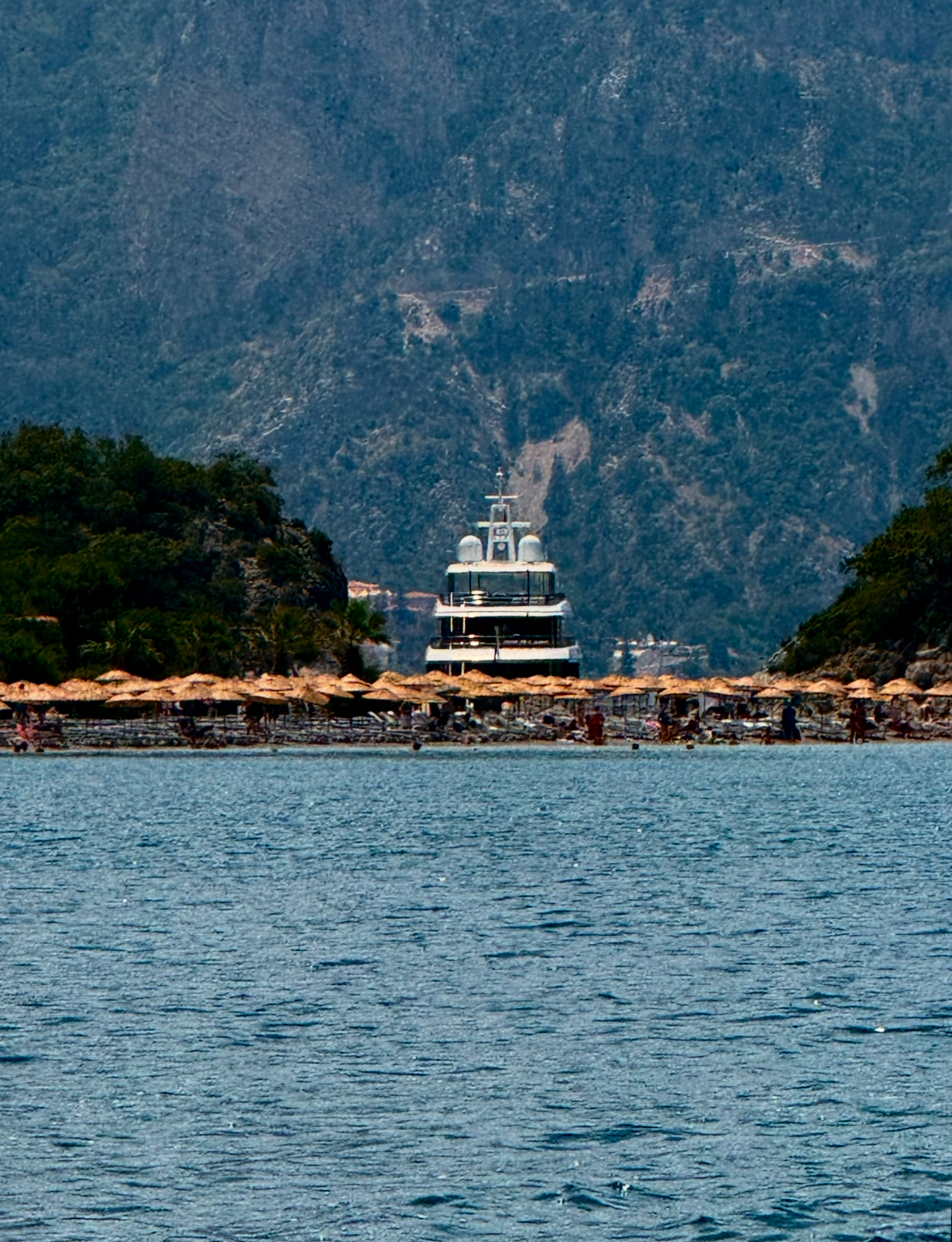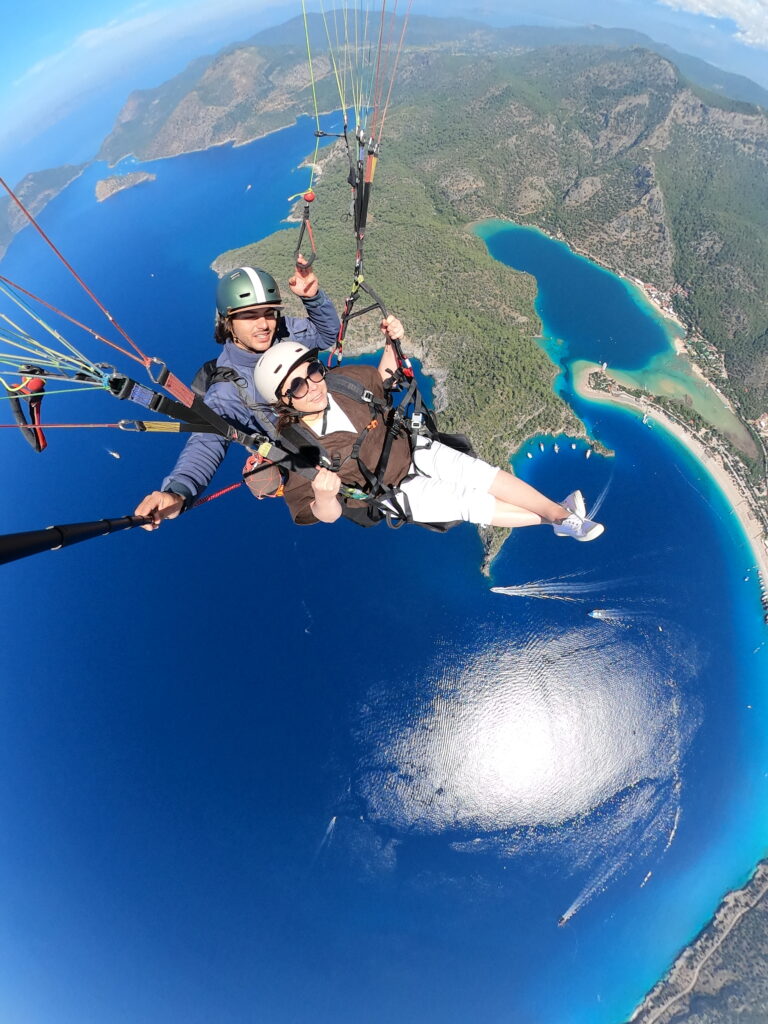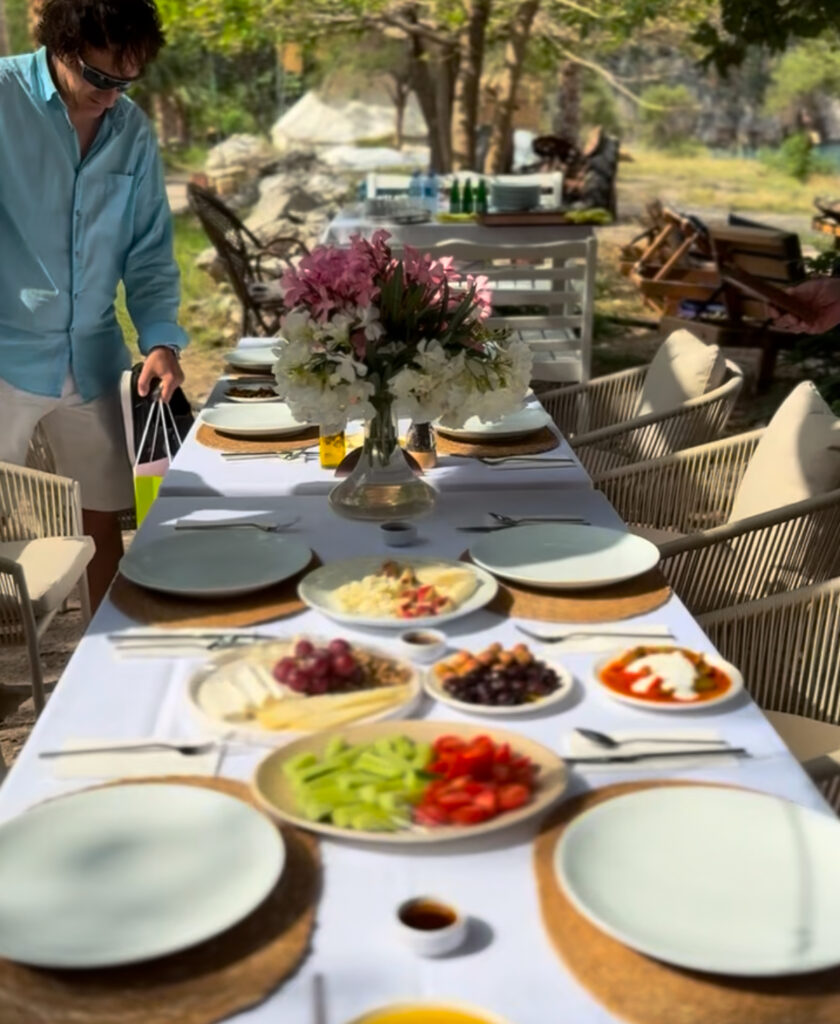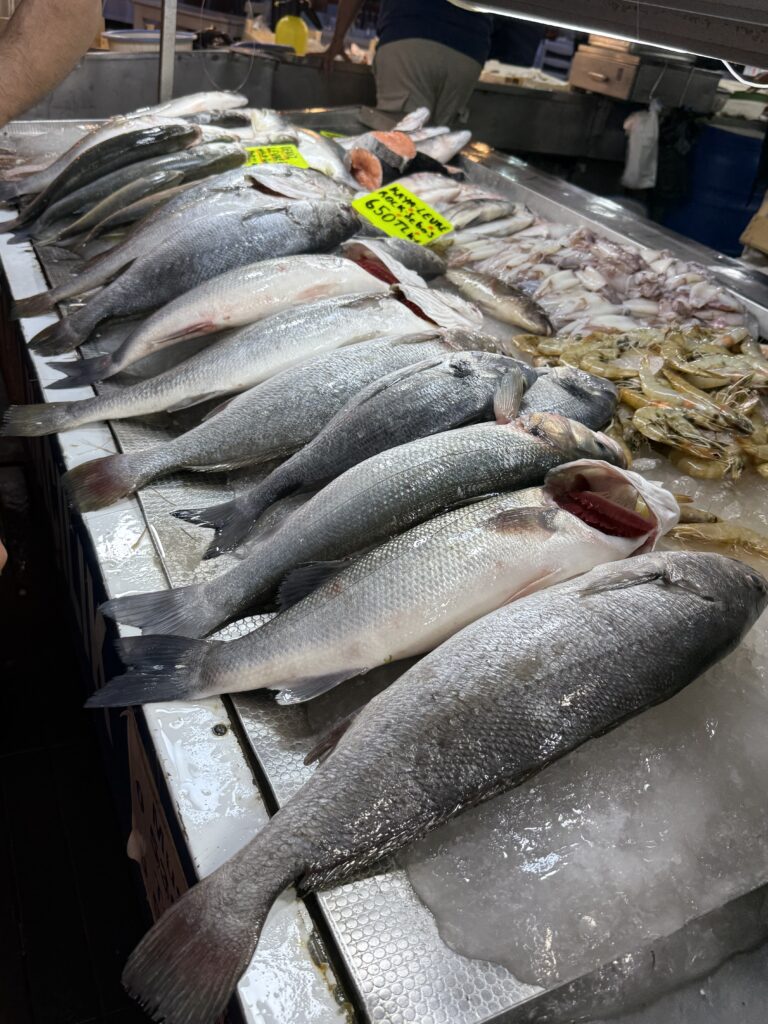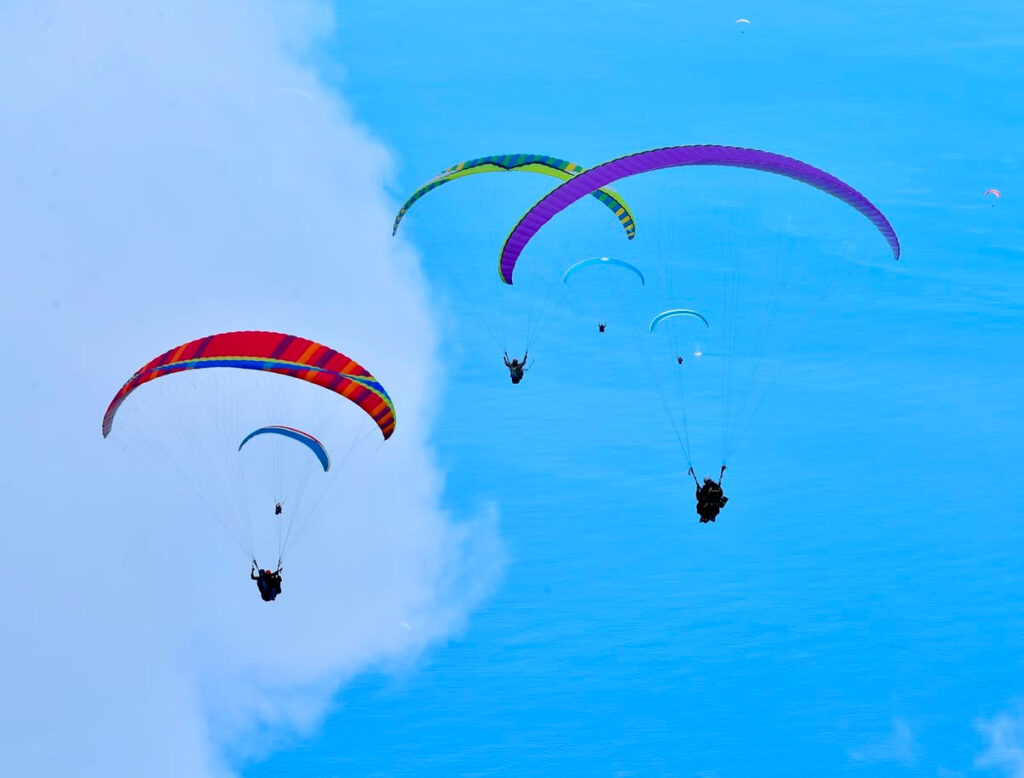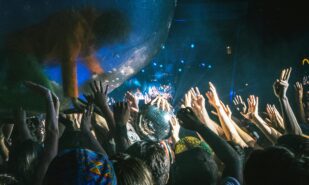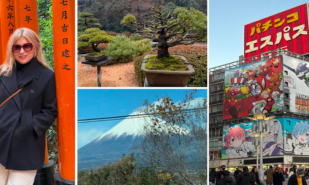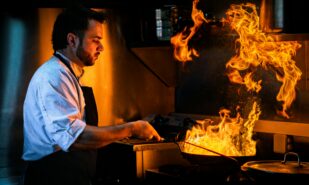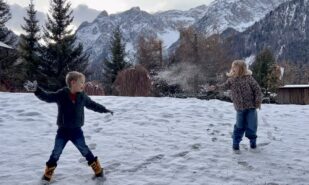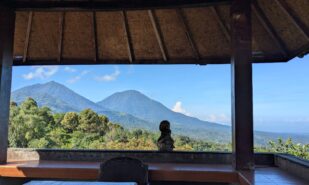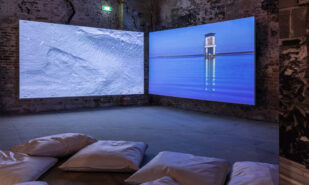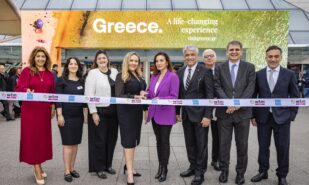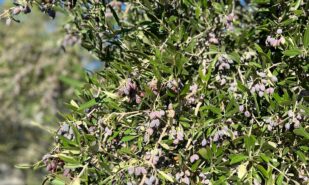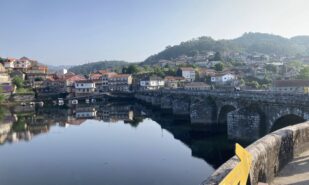From the Travel Notebook in Turkey: Day Two – Paragliders, Butterflies, Festival, Fish
The second day began with a warm wind and the promise of altitude. Just yesterday, Fethiye greeted us with evening moisture and views of the magnificent Southern Aegean Sea, and today’s plan is Ölüdeniz—a place where the sea is bluer than the sky, and the sky is merely a stage for those who launch themselves from Mount Babadağ.
The road to Ölüdeniz is a gradual immersion in the greenery of pines that climb ever higher, until suddenly a panorama opens up: a drop-shaped lagoon nestled at the foot of an ancient peak, whose name translates as “father mountain.” Here, altitude is a relative concept. Babadağ starts at 1,700 meters and rises to almost 2,000. And it’s not just a mountain, but a runway for paragliders. One after another, they soar above the sea like colorful insects—and you’re no longer sure if you’re looking up at them, or flying yourself. It seems that this is where humanity invented the word “freedom.”
Ölüdeniz is a place where you can lose yourself—in the sense of forgetting about maps, time, and tasks. Here, no one asks why you’ve come; they simply create a segment of your life. We turned toward Faralya—a narrow path laid along the ridge leads to the “Butterfly Valley.”
The valley’s name is no metaphor. A 400-meter-deep gorge with sheer cliffs truly seems to shelter hundreds of butterflies fluttering near a spring that becomes a stream. It’s quiet here. Even if the wind drives a warm wave along the coast, in the valley it’s another dimension. A space for breathing, for gazing, for solitude. A sign at the entrance says there are more than a hundred species of butterflies in the gorge. We didn’t see all hundred, but each one, like a fragment of stained glass, looked as if someone had launched tiny kites into the valley.
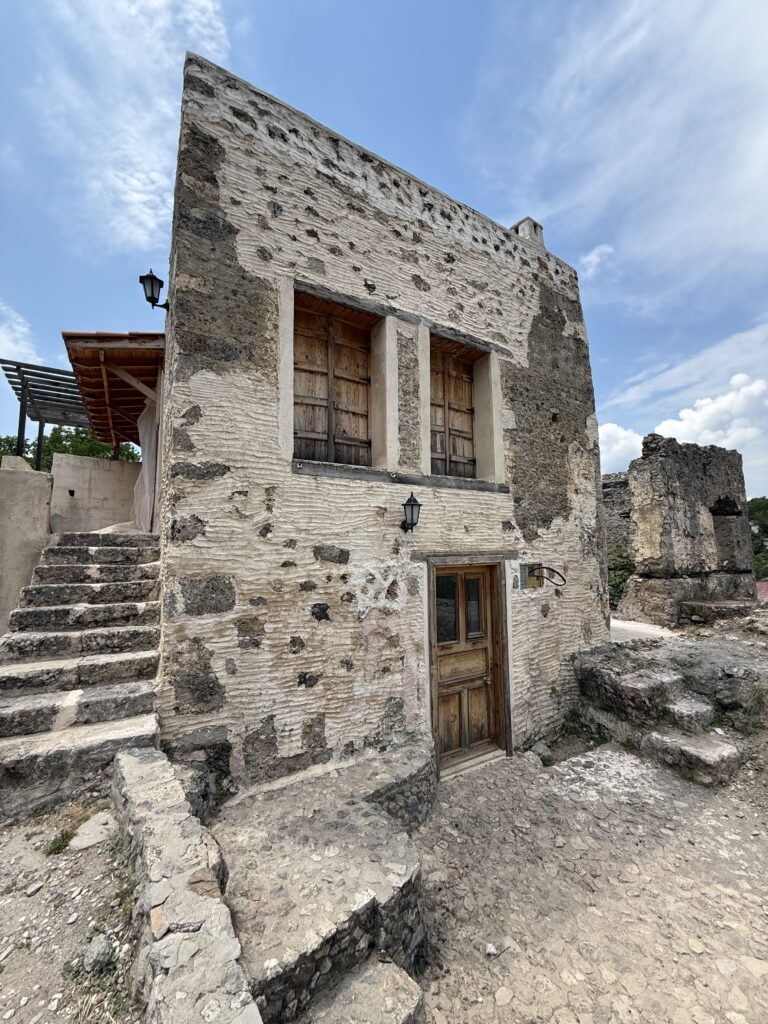
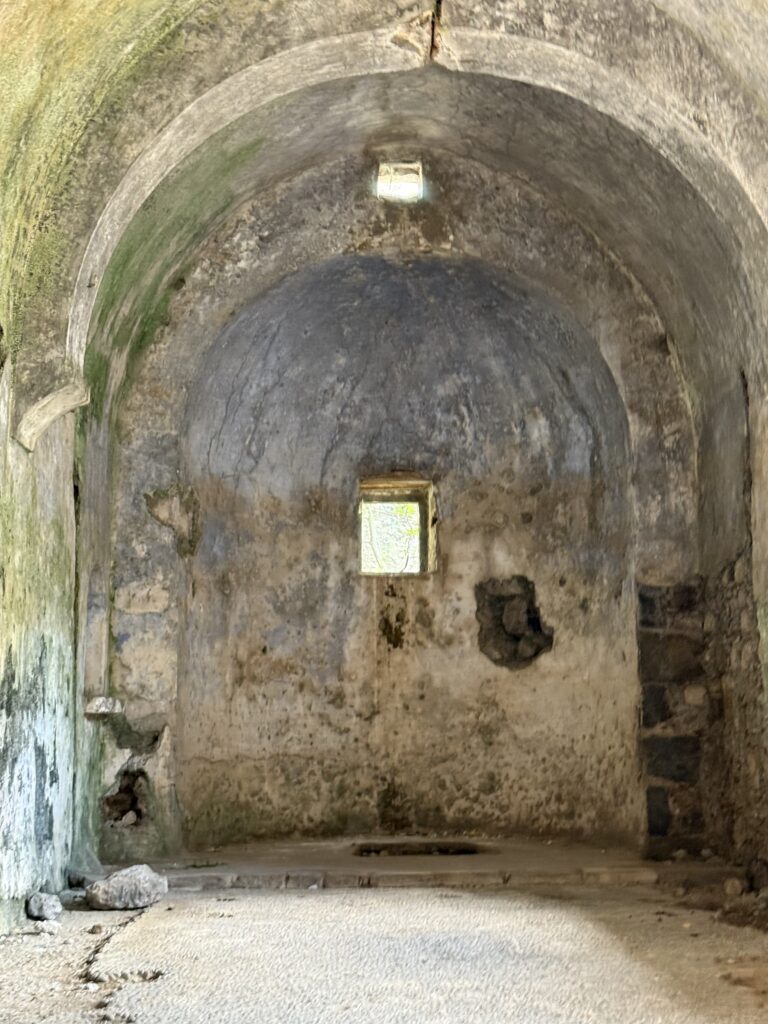
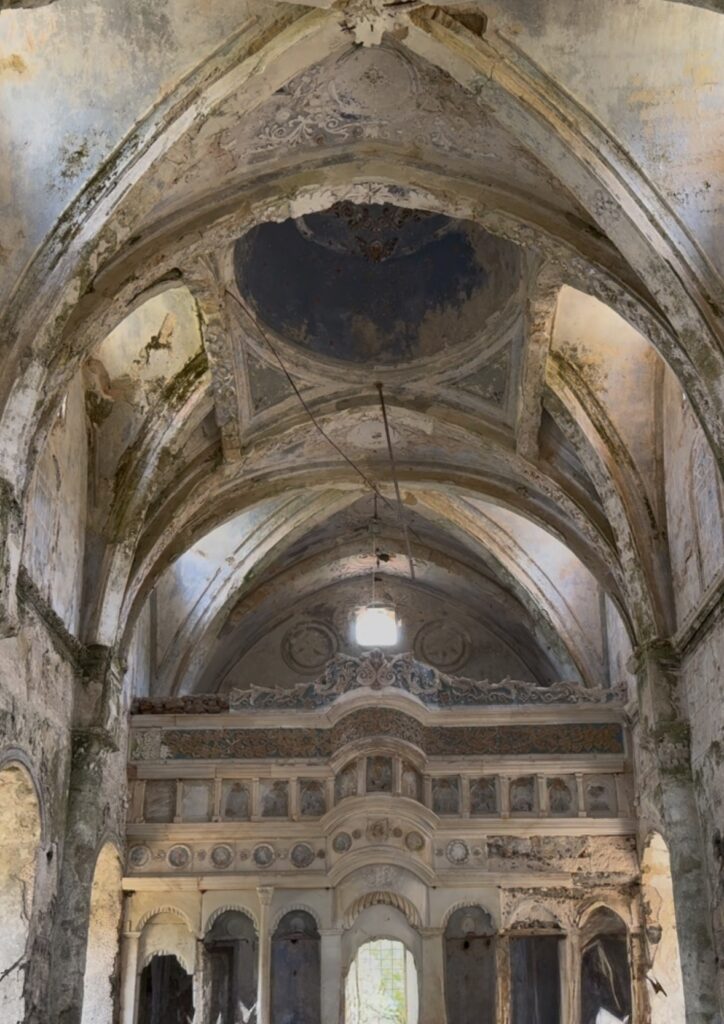
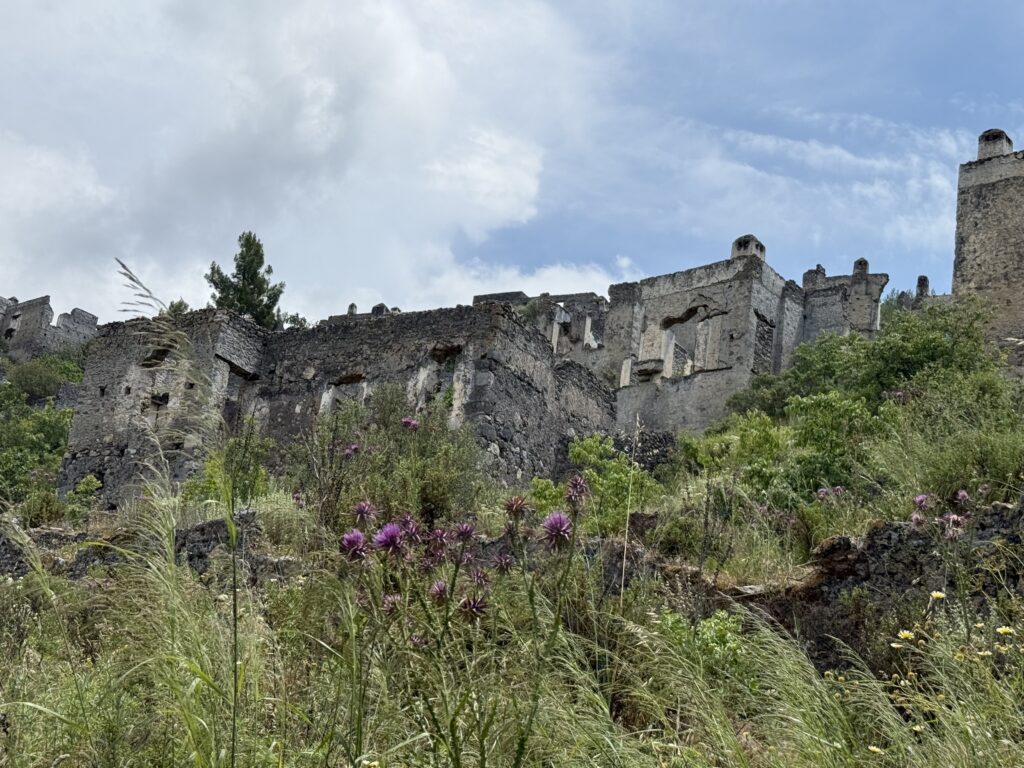

Our journey continues—to the real ancient city of Kayaköy. Today it’s called a “ghost town”: rows of roofless stone houses with empty window frames staring at the sky. Here, silence has a shape. But once, these streets were full of life. The town of Levissi arose in the 18th century. After the earthquake in Fethiye in 1856 and a major fire in 1885, people began to flock here. The town grew. It was inhabited mainly by ethnic Greeks. Then came war. And the population exchange between Turkey and Greece: swift, irreversible. The people left, the houses remained. Today, local activists are seeking to have Kayaköy recognized as a World Heritage Site. And it seems only fair—to leave this place its right to memory. Without signs, without reconstruction. Simply—as it is.
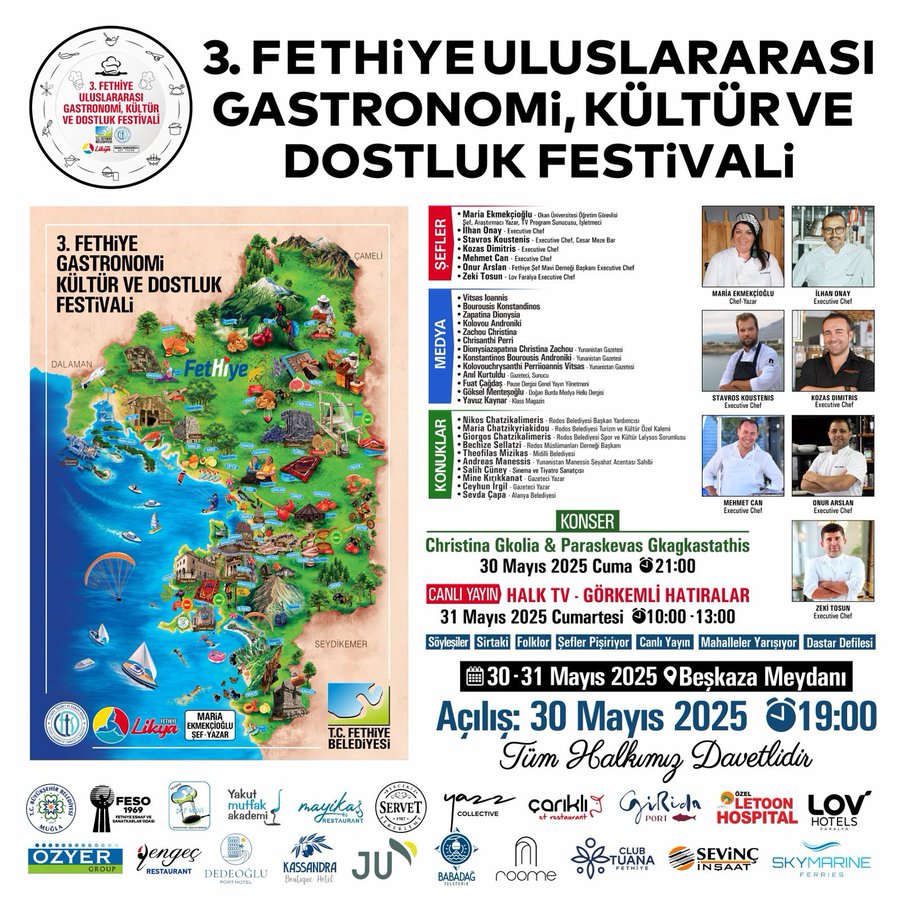
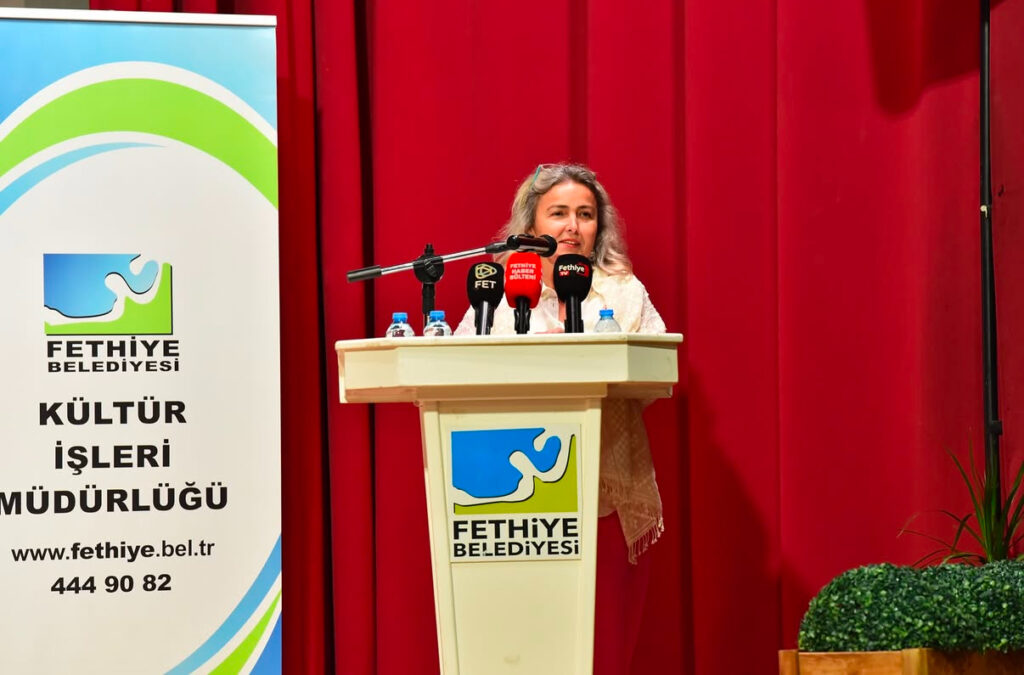
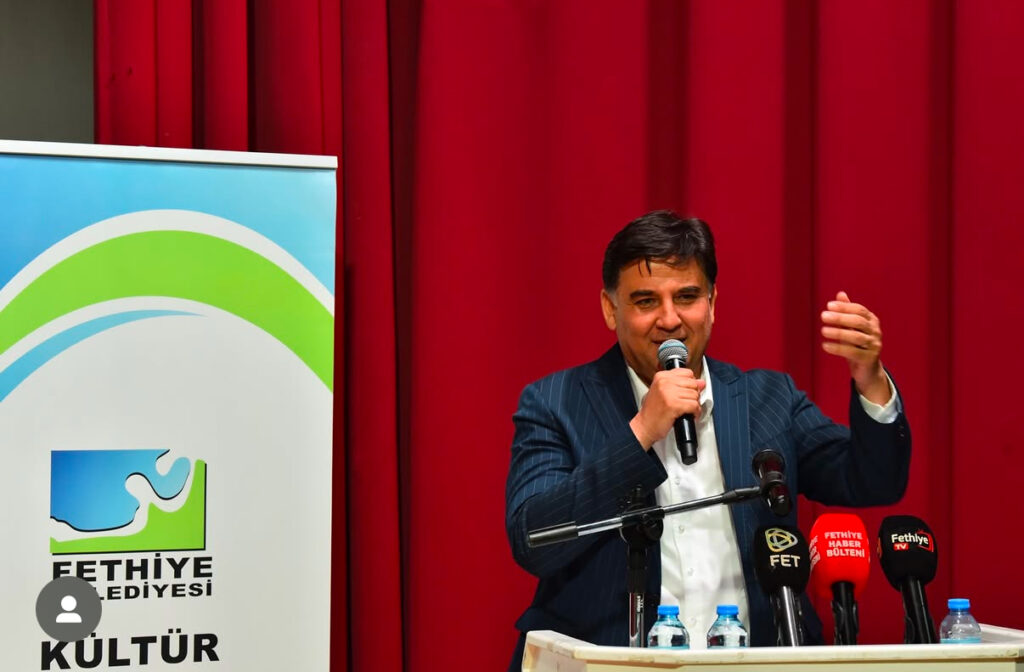
But it’s time to return: in the morning, the Gastronomy, Culture & Friendship Festival opened in the city. This is already the third such event, reflecting the municipality’s support for the region’s economy, culture, and sustainable development. The festival’s opening was led by the mayor—Alim Karaca.
“We are proud that Fethiye is a place where the Aegean and Mediterranean seas meet and where happy people live. Our goal is to develop friendship, peace, culture, tourism. Events like this give us the opportunity to present our city to the world.” Hospitality, international cooperation, the development of local cuisine—these are the main ideas of the festival. And in such moments, you realize that the mayor of Fethiye, Alim Karaca, is right: these are not just words, but a way of life for the city. In Fethiye, the world is not divided, but connected. By sea, by air, by food, by attention. And perhaps the festival is not only for tourists, but for the city itself—to once again demonstrate its purpose.
And in the evening—a walk… to the fish market. This is another planet of Fethiye: noisy, colorful, alive. People come here not just to eat, but to choose. Perch, bream, squid—everything is as fresh as can be, still with the salty scent of the sea. You buy, take it to the nearest restaurant, and soon you’re eating what was literally just swimming in the bay. Gastronomy in its purest form: not about haute cuisine, but about closeness to nature, to the moment. An elderly vendor in an apron laughs: “This isn’t a restaurant—it’s a theater!” And indeed, every order here becomes a performance.
Tomorrow—new journeys. But for now—night. And it seems as if someone prepared it especially: with a touch of salt in the air, with quiet outside the windows, and with a sky across which the lights of paragliders are still drifting.

